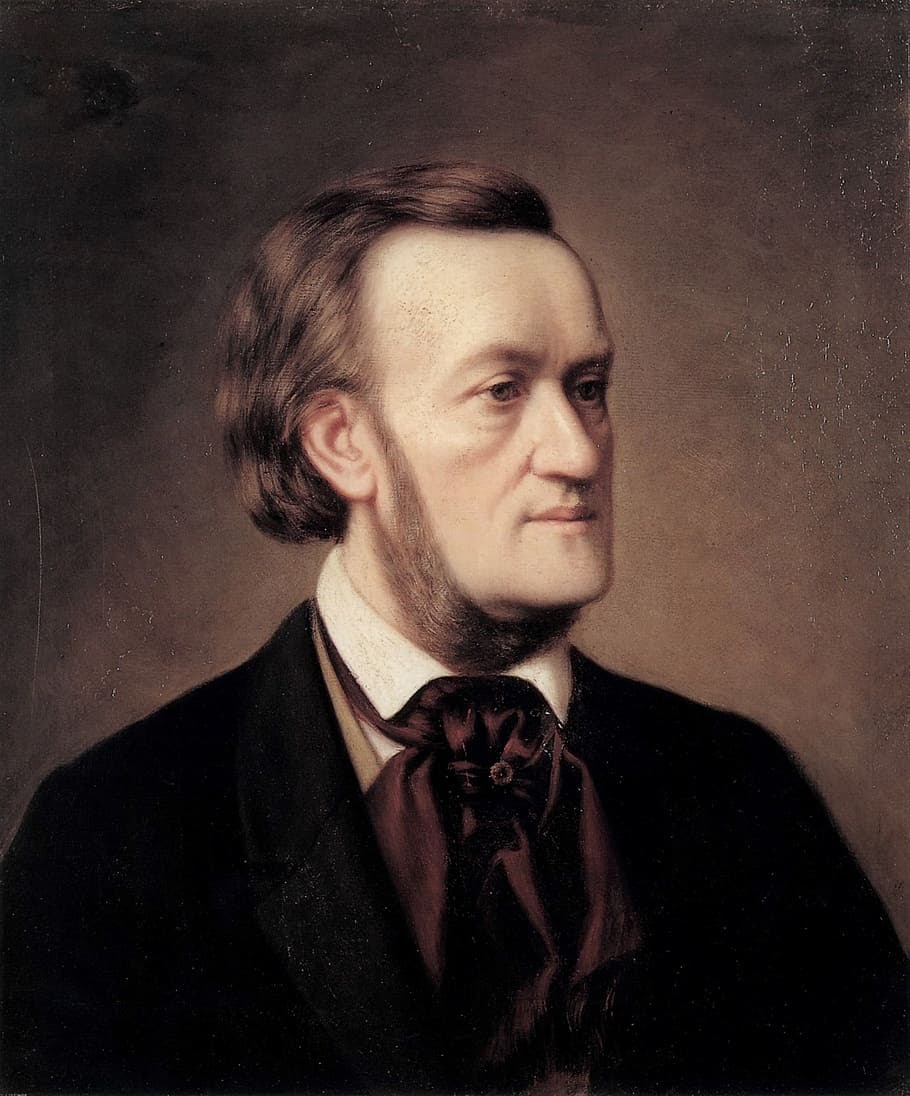| Edit | Map | Home | New Post | New Gallery |
Support
|
 | |
Wilhelm Richard Wagner (German: Wilhelm Richard Wagner; May 22, 1813, Leipzig - February 13, 1883, Venice) was a German composer, conductor, music theorist, publicist writer. The artistic direction is "Weimar School". Known primarily for his operas, or "musical dramas" as he called most of his operas (except the first few). Wagner had a significant impact on European culture at the turn of the 19th and 20th centuries, especially on modernism. On the other hand, Wagner's mysticism and ideologically colored anti-Semitism influenced German nationalism at the beginning of the 20th century, including National Socialism, which surrounded his work with a cult, which caused a significant "anti-Wagner" reaction after the collapse of the Hitler regime. Richard was born into the family of official Karl-Friedrich Wagner (1770–1813). Under the influence of his stepfather, the actor L. Geyer, in 1828 Wagner began to study music at the cantor of the St. Thomas Theodor Weinlig church, in 1831 he began musical studies at the University of Leipzig. In 1833-1842 he led a restless life, often in great difficulty in Würzburg, where he worked as a theater choirmaster in Magdeburg, then in Königsberg and Riga, where he was a conductor of musical theaters, then in Norway, London and Paris, where he wrote an overture " Faust" and the opera "The Flying Dutchman". In 1842, the triumphant premiere of the opera "Rienzi, the last of the tribunes" in Dresden laid the foundation of his fame. A year later, he became the royal Saxon Hofkapelmeister, headed the Chapel of the Electors of Saxony. Since establishing his reputation as the composer of such popular works as The Flying Dutchman and Tannhäuser in the Romantic tradition of Weber and Meyerbeer, Wagner transformed the elaborate operatic concept into a work of art (Gesamtkunstwerk). This made it possible to achieve a theoretical combination of all poetic, visual, musical and dramatic arts, which was embodied in a series of essays between 1849 and 1852. Wagner understood this concept most fully in the first half of the monumental opera cycle "The Ring of the Nibelung". However, his views on the relative importance of music and drama were eventually changed again, and he brought back some traditional operatic forms in his last few works, including the Nuremberg Meistersingers.
In 1849, Wagner took part in the May Uprising in Dresden and after its defeat, he moved to Zurich, where he wrote the libretto for the tetralogy "The Ring of the Nibelungen", the music for its first two parts ("Gold of the Rhine" and "Valkyrie") and the opera "Tristan und Isolde".
Wagner introduced a number of achievements in the field of musical language, in particular extreme chromaticism and rapid change of tonal centers, which significantly influenced the development of European classical music. His "Tristan and Isolde" is sometimes called "The symbol of the beginning of modern music." In addition to music, Wagner's influence extended to philosophy, literature, visual arts, and theater. He founded his opera house "Theater in Bayreuth", which incorporated many design features. It was here that "The Ring of the Nibelungen" and "Parsifal" received their premieres. His great works on music, drama and politics attracted attention for their original, often extremely positioned comments on the socio-political and cultural-artistic development of humanity; in recent decades, Wagner's literary works have been particularly marked by anti-Semitic content.
In 1858, Wagner briefly visited Venice, Lucerne, Vienna, Paris and Berlin.
In 1864, Wagner, having won the favor of the Bavarian king Ludwig II, who paid his debts and supported him in the future, moved to Munich, where he wrote the comic opera "Nuremberg Meistersingers" and the last two parts of "The Ring of the Nibelung": "Siegfried" and "Death of the Gods" . In 1872, the foundation stone was laid in Bayreuth for the House of Festivals, which opened in 1876, where the premiere of the tetralogy "The Ring of the Nibelung" took place on August 13–17, 1876. In 1882, the opera-mystery "Parsifal" was staged in Bayreuth. In the same year, Wagner, due to his health, left for Venice, where he died in 1883 from a heart attack. |
Author: Sonya Version: 1 Language: English Views: 0
|
Short link: https://www.sponsorschoose.org/a174
Short link to this version: https://www.sponsorschoose.org/n200
Created by Sonya at 2023-05-30 08:47:39
Last modified by Sonya at 2023-05-30 21:59:54
|